I was looking over some old posts and found this one from 2017. It fits right in with my current series on great all-time literary critics, so I'm bumping it to the top of the queque.I decided to do some Ngram searches on the names of important literary critics. Let's start with Northrup Frye:
He published The Anatomy of Criticism in 1957 and that, I believe, is the book that put him on the map. He tops out in the late 1980s.
Here we've got Frye, plus four other critics, Hillis Miller, George Steiner, Stanley Fish, and Harold Bloom. Frye outpaces all of them except Bloom, and Bloom passes him only in 1994 or so, where Frye is coming down and Bloom is at his apogee. Harold Bloom outpaces Fish, Steiner, and Miller, presumably because he developed a general audience readership that they did not. Notice as well that the other three (Hillis Miller, George Steiner, Stanley Fish) peaked in the 1990s.
Now let's add Derrida to the group:
Not surprisingly he sends them all to the showers. Of course, he's not a literary critic. He's a philosopher with a strong interest in literature and, of course, who exerted a strong influence on literary criticism.
Notice, in passing, that Derrida also outpaces Noam Chomsky, sometimes touted as the best-known intellectual in the world (as much for his politics, if not more, as for his linguistics):
Finally, let's recontextualize Frye and situate him among the New Critics:
John Crow Ransom is there at the bottom, while Frye rises above the others in the middle and late 1960s. Both Brooks and Warren had been students of Ransom and, of course, they had their names on two of the best-known undergraduate textbooks for literature, Understanding Poetry and Understanding Fiction. Warren also won Pulitzer prizes in both fiction and poetry (the only one to do so) and had a novel, All the King's Men, made into a major motion picture. Still, since 1970 Frye was mentioned more often in books than any of the New Critics.
Conclusions?
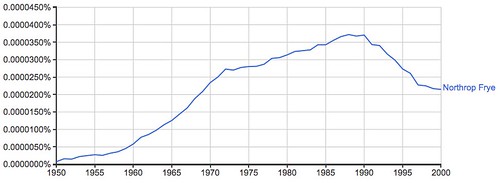
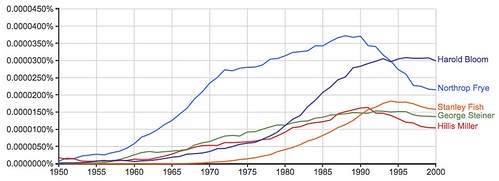
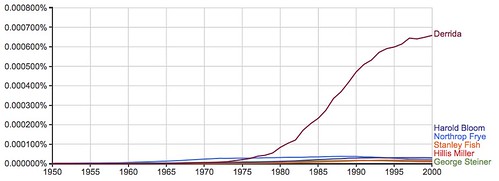
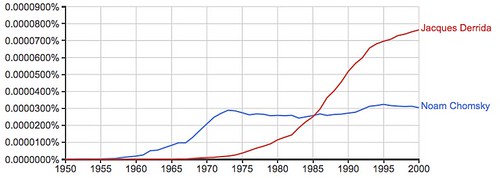
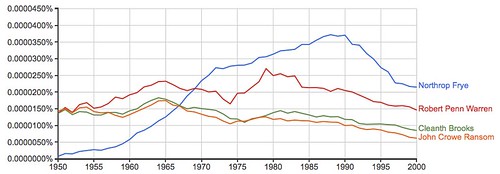
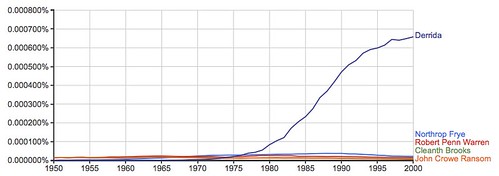
No comments:
Post a Comment